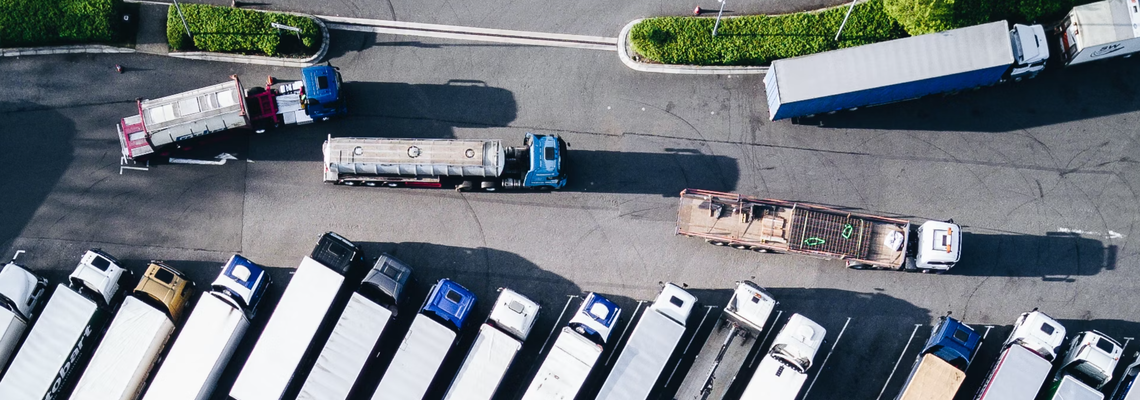
For more climate protection: new lorry toll could also contribute to better air quality in cities
From December 2023, the lorry toll is to be linked to CO2 emissions. This is intended to incentivise more climate protection and reduce emissions. 200 euros will be due per tonne of CO2. The revenue from the toll is to be invested primarily in the railways in order to be able to transport more goods by rail again in future.
Since 2005, HGVs have had to pay a toll for using motorways and some federal roads. From December 2023, however, the amount of this toll will no longer depend solely on the distance a lorry travels, but also on the amount of CO2 it emits in the process. This change is part of the coalition agreement and has been approved by both the Bundestag and the Bundesrat.
The aim of this change in the law is to accelerate the switch to climate-neutral drive systems. This is because lorries currently generate a third of all CO2 emissions in the transport sector. The new regulation will send a price signal that will make the use of lorries with alternative drive systems much more attractive for the freight transport industry.
However, the adjustment of the toll is not the only measure. From July 2024, the toll obligation will be extended to HGVs weighing more than 3.5 tonnes. However, artisan vehicles under 7.5 tonnes will be exempt from the toll. In addition, zero-emission vehicles will be exempt from the toll until 31 December 2025.
The changes will make an important contribution to climate protection. The higher toll for CO2-intensive vehicles will create an incentive to switch to more environmentally friendly alternatives. This will not only lead to a reduction in CO2 emissions, but will also improve air quality. Although the toll is not levied in cities, many freight transport destinations are located in cities with environmental zones. The change could therefore also have an impact on air quality in the cities and the regulations in the environmental zones.
The additional revenue from the new toll will be earmarked for improving the federal trunk road infrastructure and for measures in the mobility sector. The focus here is on federal railways. The government is therefore gradually focussing on more environmentally friendly alternatives not only on the roads, but also on the railways.
The change to the toll is an important step towards more sustainable and climate-friendly mobility. However, it certainly also harbours challenges for the industry. Prices for haulage companies will rise if they do not want to or cannot switch to alternative fuels. The lack of charging infrastructure is also a problem, as the freight transport industry needs Europe-wide charging security in order to be able to handle international transport with electric drives without any problems.
CO2 coupling will therefore only really have a steering effect in favour of alternative fuels if the framework conditions are set correctly. To achieve this, the government in Germany must make improvements and also rely on other European countries to expand the infrastructure. There is still a long way to go.
